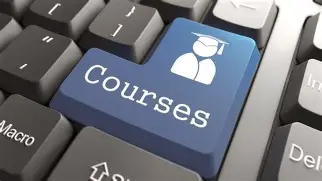Stock Market Trading Courses: Your Guide to Learning the Right Way
In today’s world, where financial independence and smart investing are more important than ever, the stock market is no longer just for seasoned experts. More and more people are diving into trading—and many are starting with little or no experience. If you’re one of them, the idea of jumping into the market might feel overwhelming. This is where stock market trading courses can help.

These courses are designed to teach you everything from the basics of trading to more advanced strategies—all in a way that’s easy to understand and apply. Whether you’re looking to trade full-time or just want to manage your own investments more confidently, a good trading course can be your first real step in the right direction.
Why Take a Stock Market Trading Course?
You could watch YouTube videos or read blog posts, so why take a course?
Because courses offer structured learning. Instead of picking up scattered bits of information here and there, you get a step-by-step approach that builds your knowledge gradually. Most quality courses are designed by experienced traders or financial professionals who not only understand the market but also how to teach it.
Trading involves risk, and without proper guidance, it’s easy to make costly mistakes. A course can help you avoid common pitfalls, understand market behaviour, and develop your own trading style.
What Do These Courses Teach?
The content of stock trading courses can vary depending on the level (beginner, intermediate, or advanced), but most of them cover:
- Stock market basics: What are stocks, how the market works, different types of orders, and trading hours.
- Types of trading: Intraday, CNC trading, Swing trading, long-position investing.
- Technical analysis: Reading charts, identifying patterns, understanding indicators like RSI, MACD, and moving averages.
- Fundamental analysis: Evaluating companies using financial statements, earnings reports, and industry trends.
- Risk management: This helps traders to protect their capital using stop-loss, position sizing, and diversification.
- Trading psychology: Controlling emotions like fear and greed, which often affect decision-making.
Most courses also offer practical tools like demo trading platforms, mock portfolios, and real-time examples to help you apply what you learn.

Most courses also offer practical tools like demo trading platforms, mock portfolios, and real-time examples to help you apply what you learn.
Free vs. Paid Courses: What’s the Difference?
There are plenty of free stock market trading courses available online. Websites like Coursera, Zerodha Varsity, Udemy, and YouTube host educational content that’s ideal for beginners.

However, paid courses often go deeper. They usually provide structured content, mentorship, one-on-one support, assignments, quizzes, and even community forums where you can interact with other learners and instructors. If you’re serious about building a strong foundation or aiming to trade professionally, investing in a paid course might be worth considering.
What to Look for in a Good Course
Not all courses are created equal. Here are a few things to keep in mind when choosing the Good course:
- Instructor experience: Look for someone with real-world trading experience, not just theoretical knowledge.
- Practical learning: Choose a course that includes live market examples or trading simulations.
- Student reviews: Check feedback from previous learners to see how effective the course has been.
- Support and updates: The market keeps changing, so it’s helpful if the course is updated regularly and includes post-course support.

Final Thoughts
Learning to trade in the stock market doesn’t happen overnight. It takes patience, guidance and time. A well-designed stock market trading course can give you the clarity and confidence you need to start your journey.
Instead of guessing your way through trades or relying on online tips, you’ll be equipped with real knowledge. Whether you’re looking to earn extra income, grow your savings, or just understand how markets work, the right course can make all the difference.
So, if you’re ready to take control of your financial future, start by investing in yourself—and your education.


No responses yet